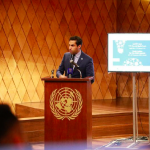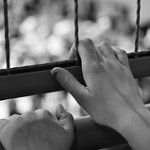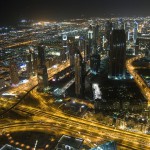The current situation in Syria is the most dangerous and complex humanitarian crisis in recent history, contributing to the fastest growing refugee rate ever recorded. To escape the state of war, Syrian refugees have been crossing Lebanese borders in search of asylum. According to an estimate by the UNHCR, the Syrian refugee population may reach 1,5 million by the end of 2014.
Struggling to keep up with a crisis that shows no signs of slowing down, Lebanon has become the country with the highest per-capita concentration of refugees worldwide. This has led to huge pressure on the state with regard to the provision of schooling and education. The country of 10,452 km2 now hosts refugees which comprise 25 percent of the population meaning that every fourth person in Lebanon today is a Syrian refugee.
At the beginning of the Syrian civil war in March 2011, while noting that Lebanon did not sign the 1951 UN refugee convention, the Lebanese government opened its borders and schools to Syrian refugees. The opening of borders facilitated the cooperation between refugees and the Lebanese government but the government still refuses to build formal refugee camps, fearing that they will become a permanent part of the landscape.
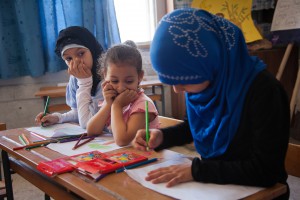 The international community has noticed that the impact on Lebanon has been immense; putting education under pressure and creating challenges. The refugee surge in Lebanon has created an education crisis affecting Syrian, Palestinian, and impoverished Lebanese children.
The international community has noticed that the impact on Lebanon has been immense; putting education under pressure and creating challenges. The refugee surge in Lebanon has created an education crisis affecting Syrian, Palestinian, and impoverished Lebanese children.
More than half of the Syrian refugees are children between the ages of five and seventeen. This has caused classrooms to become overcrowded, putting the national education system under considerable strain, resulting in overburdened classes, which has a negative impact on classroom performance.
Due to the long waiting list to attend Lebanese public schools, the ministry of education in Lebanon believed that the only solution was to open afternoon classes for Syrian refugees, as the budget does not allow for the attendance of the large number of Syrian refugee children and teachers during the morning and evening schedules.
Lebanese local public schools lack both the capacity and resources to accommodate the large increase in school-aged children. With that said, and in spite of difficulties, around 57,000 Syrian refugee children have access to the second shift of classes, for an easier and better level of education. This has made it easier for Syrian refugee children since they have faced language barriers in the first shift, as the Lebanese curriculum is taught in English and French.
More than 2,500 teachers have also been trained to give teachers the tools to manage the psychological and educational needs of Syrian refugee students and strengthen educational capacity. Even with these programs expanding, more than 300,000 school-aged children in Lebanon have not enrolled in any form of educational program this school year (2014/2015).
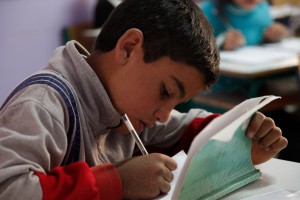 With the growth of new universities and the creation of branch campuses, Lebanon’s higher education sector is probably more divided now, in sectarian affiliation and geography, than at any time in the past. This is due to the Lebanese government’s failure to articulate a coherent policy toward Syrian refugees, making the implementation of effective programs to address the educational crisis more difficult and complicated.
With the growth of new universities and the creation of branch campuses, Lebanon’s higher education sector is probably more divided now, in sectarian affiliation and geography, than at any time in the past. This is due to the Lebanese government’s failure to articulate a coherent policy toward Syrian refugees, making the implementation of effective programs to address the educational crisis more difficult and complicated.
Studies also prove that young Syrian men appear to be seeking residency permits in Lebanon on the basis of their student status. This is for two reasons; firstly, because the student visa is less expensive than the temporary protection visa, and secondly, because pursuing a university education grants them the added benefit of deferment. They would, without student status, be required to serve in the Syrian military.
Schooling and education is a basic right of all children, therefore it is important for all children to get an education whether they are Syrian, Lebanese, or Palestinian. Recognizing the stress on the public school systems, UNICEF has been the head of developing of a strategy entitled ‘No Lost Generation.’
This project seeks to expand national capacity and access to education and protection for host communities, both inside Syria and in neighboring countries, by bridging humanitarian and development responses. The strategy aims to significantly expand formal, as well as non-formal, education in non-traditional settings. This is achieved through the improvement of children’s access to quality education and through the strengthening of the protective environment for children.
Lebanon is struggling to keep up with and protect all refugees in need and, in particular, school aged children. Supporting Lebanon is not only a moral imperative, but it is badly needed for a better schooling and educational system. By working together, for the sake of the children, we can achieve a No Lost Generation.
By Pamela Tannous
Image credit:
Picture 1: Stars Foundation, licensed under CC BY-NC-ND 2.0
Picture 2: DFID – UK Department for International Development, licensed under CC BY 2.0

